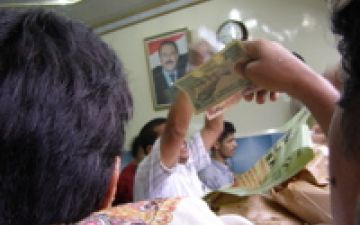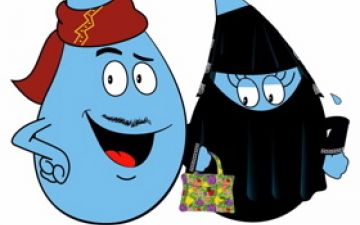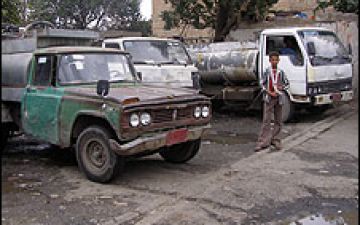Sudan: A Second Darfur?
A delegation from the northern Sudanese village of Selem visits the mayor's office to complain of services in their village. July 2008.
It's a flashy headline, but a question that some people are legitimately asking themselves. Could there be a rebellion in the north, as there was in Darfur, to the west?
The answer depends on who you ask.
Northerners certainly complain of marginalization. They say they are worse off than Darfur, in fact.


